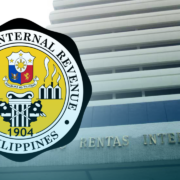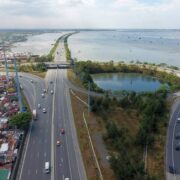Classes in Luzon, Visayas suspended Nov. 10, 11

Malacañang has ordered the suspension of classes in all levels in both private and public schools in the whole of Luzon and the Visayas.
Under Memorandum Circular No. 106 signed by Executive Secretary Lucas Bersamin on Sunday, there will be no classes on Nov. 10 and Nov. 11 in the following regions: National Capital Region, Cordillera Administrative Region, Region 1 or Ilocos Region, Region 2 or Cagayan Valley, Region 3 or Central Luzon.
Gov’t work suspended
Also covered by the memorandum are Region 4-A or Calabarzon, Region 4-B or Mimaropa, Region 5 or Bicol Region, Region 6 or Western Visayas, Region 7 or Central Visayas, Negros Island Region, and Region 8 or Eastern Visayas.
Malacañang also ordered work suspended in government offices on Monday in the following regions: National Capital Region, Cordillera Administrative Region, Regions 1, 2, 3, 4-A, 4-B and 8. Private companies may use their own discretion in deciding whether or not to do the same.
Release of funds, assistance
But government agencies responsible for basic, vital and health services, preparedness and response duties will remain operational.
Upon the recommendation of the National Disaster Risk Reduction and Management Council (NDRRMC), President Marcos also issued Proclamation No. 155 declaring a state of national calamity for one year due to the destruction left by Typhoon “Tino” (international name: Kalmaegi) and Supertyphoon Uwan’s anticipated effects on the country.
In a memorandum dated Nov. 8, Defense Secretary Gilberto Teodoro Jr., who also chairs the NDRRMC, said the proclamation shall be interpreted “to encompass all natural calamities occurring within one year from Nov. 7, 2025, unless sooner lifted by the President.”
The declaration will hasten government and private rescue, recovery, relief and rehabilitation efforts, including facilitating international humanitarian assistance.
It will also immediately authorize the imposition of a price freeze on basic necessities and prime commodities nationwide, the granting of no-interest calamity loans, as well as prevent overpricing, profiteering or hoarding of prime commodities, medicines and petroleum products.
The state of national calamity will further grant wide latitude to national and local governments in the usage of appropriate funds, including calamity and quick response funds, for rescue, recovery, relief and rehabilitation efforts.

















